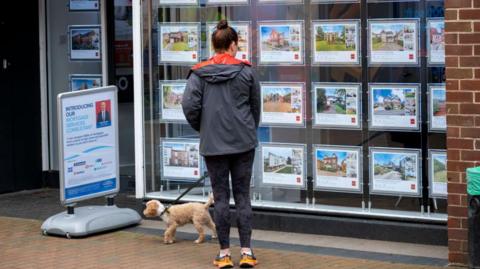In its latest Financial Stability Report, the Bank said household finances had remained resilient in general.
"While many UK households, including renters, are still facing pressures from the increased cost of living and higher interest rates, the share of households who are behind in paying their mortgages is low by historical standards," it said.
"And the share of households spending a high proportion of their income on mortgage payments is expected to remain low."
The Bank of England started to increase interest rates in late 2021 and after a series of rises, rates finally started to fall earlier this year.
The Bank predicts about 2.7 million homeowners will refinance onto a mortgage rate of over 3% for the first time before the end of 2027.
It says a typical owner-occupier coming off a fixed rate in the next two years will see their monthly mortgage repayments increase by around £146.
However, that is a smaller amount than it estimated at its last report in June, reflecting lower mortgage rates and the fact that more households are choosing to borrow over longer terms.
The Bank stressed that UK lenders remain in a strong position to support households and businesses, even if the economic risk environment worsens.
Looking at the global picture, the Bank said "uncertainty around, and risks to, the global economic outlook have increased".
The Bank did not specifically mention US President-elect Donald Trump's plans to put import tariffs on goods from Canada, Mexico and China, but noted the "potential to increased global fragmentation" of trade.
It said this potential for trade fragmentation "poses risks to UK financial stability".
